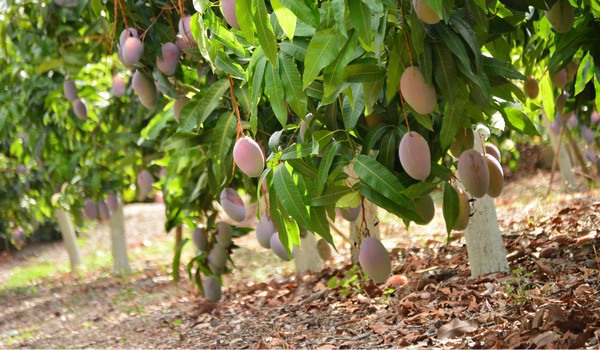In the next campaign, which will begin in mid-August, Spain's mango production, which is mainly concentrated in Malaga, will fall between 60 and 70% below its potential of 40,000 tons. It is a result of the direct impact of drought and poor flowering due to the weather in late May and early June, according to Enrique Colilles, CEO of the cooperative Trops, which accounts for more than half of the mango production in Malaga.

The cultivation of subtropical fruits in the Axarquia of Malaga, the area which accounts for most of Spain's production, is being greatly affected by the lack of water. The reservoir of La Viñuela is already at 9% of its capacity with about 15 cubic hectometers. Restrictions are already being put in place to prevent shortages.
"Last year, the drought was already problematic, but this year, the drought cycle that began in 2019, will cause the volumes to be highly depleted," said Enrique Colilles.
"It is not the first time this has happened in Malaga, as we have already had drought cycles in 2008, 1994, 1982. It is a phenomenon that occurs every 6 to 8 years. The difference between previous years and now is the high demand and the great value that mangoes have reached in the European markets, since consumers have become more aware of the virtues of a product that is grown 'locally' and harvested at its optimum point of ripeness," he says.
The sharp drop in the Spanish mango production this season will force European companies to import more mangoes from other origins during the Spanish mango season. "Spain will not be able to cover all the demand from markets looking for such qualities and value, so imports from other countries will increase. However, despite this reduction in the harvest, we will stick to the same strategy of betting on strong promotions in Spanish mass media. In fact, we are greenlighting further investments to ensure continued growth," said Enrique Colilles.
"We need infrastructures to provide us with the necessary water resources, like in many other parts of the world. For many years, the construction of these infrastructures has been halted by political issues. Fortunately, in a few months, solutions will begin to be implemented that we hope will become functional in the coming years, so that we won't depend as much on the rain in an area which meets many conditions to produce an exquisite mango," said the CEO of Trops. "We hope things will go back to normal next season."
For more information:
TROPS
T: +34 952 500 700
[email protected]
www.trops.es










